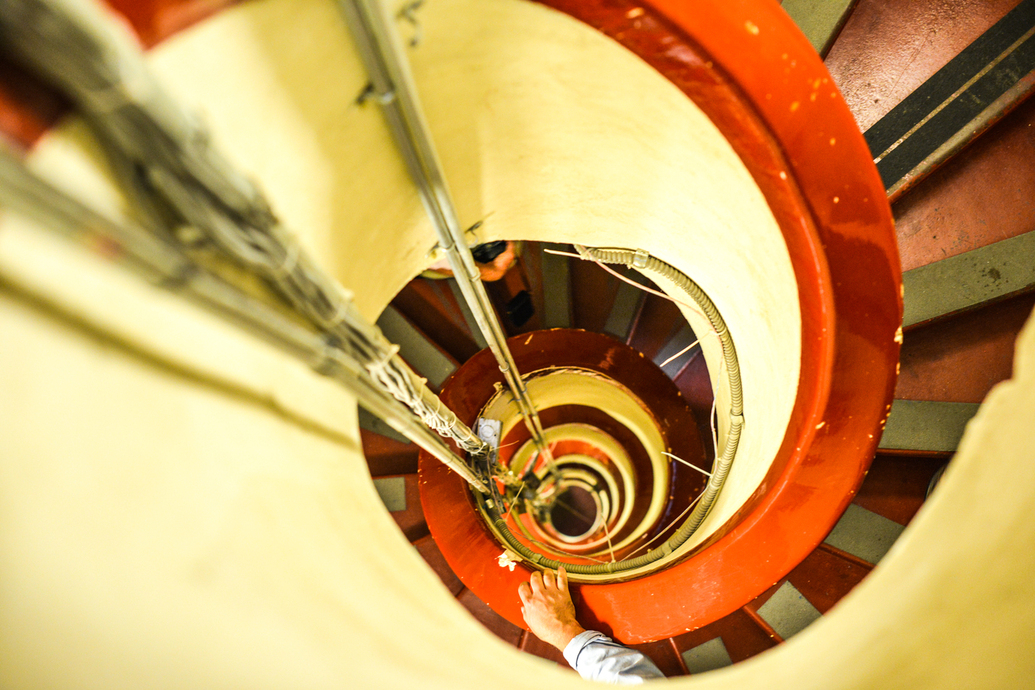 Charles Hood, Fibinacci Spiral
Charles Hood, Fibinacci Spiral
The Harbour
She was a Londoner but when he said,
It’s a good two miles of coast-path walk
to get to the Harbour Inn, she said, Come on,
I’m a park runner Sundays, remember?
They’d trudged their walk to the coastal village
when she saw the pillars, tall, white-painted,
standing each side of the harbour entrance.
For ships, he said. Before the days of radar.
Seeing the harbour, Wow, she thought, it’s narrow.
It seemed to be barely a hundred yards across,
this inlet to the Celtic village world
to which she’d come to meet his family.
First in the pub (its menu cosmopolitan,
but she loved the fresh crab), she met friends,
older, kindly, garrulous, seeming as they talked
to be translating from the Welsh.
Later, in his parents’ cottage, at four, at tea-time,
she began to feel a strangeness, the chapel
(his grandfather’d been a preacher), the village
wrapped in its own staunch certainties.
Her mind went back to those tall white guiding pillars,
marking the entrance to that narrow harbour.
________________________
Robert Nisbet
Review by Massimo Fantuzzi
There is no present in Wales,
And no future;
There is only the past,
Brittle with relics,
Wind-bitten towers and castles
With sham ghosts;
Mouldering quarries and mines; (R. S. Thomas, Welsh Landscape)
Not in this corner of Wales, not now. Here, I read a story of much-needed (given the times) acceptance, openings, new beginnings, fairy-like infatuation, and simply unforgettable sweet crab flesh. True, we might feel a gentle squeeze (little adjustments must be made if we want to fit), and under the admonishing and judgmental presence of those pillars we do feel rather insignificant; however, once reached the harbour, unexpectedly, we soon find all the space we need. Probably from an autobiographical past this is in my view a story about the future or, better, a story where the future it’s captured interacting with the past, the movement with the static, the ever-change with the ever-still. The comfortable city-park runner becomes the windswept cliff hiker.
Review by Paul Jones
Although somewhat alien to the place, the “she” of this poem wants to understand “his family,” “his place.” She’s game to walk the distance turning her park running into local use. But the smallness, the narrow access from the sea that must be entered to get access to the town, says something both specific and inexact. Both beautiful and challenging at first sight and a way into an understanding of the place and people — and of “him” and “him.”
